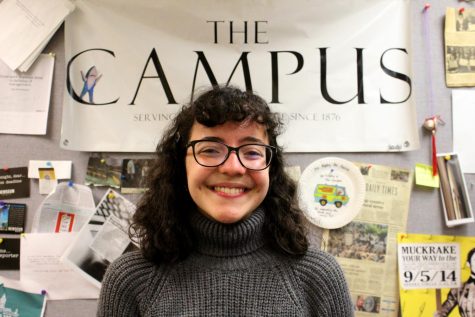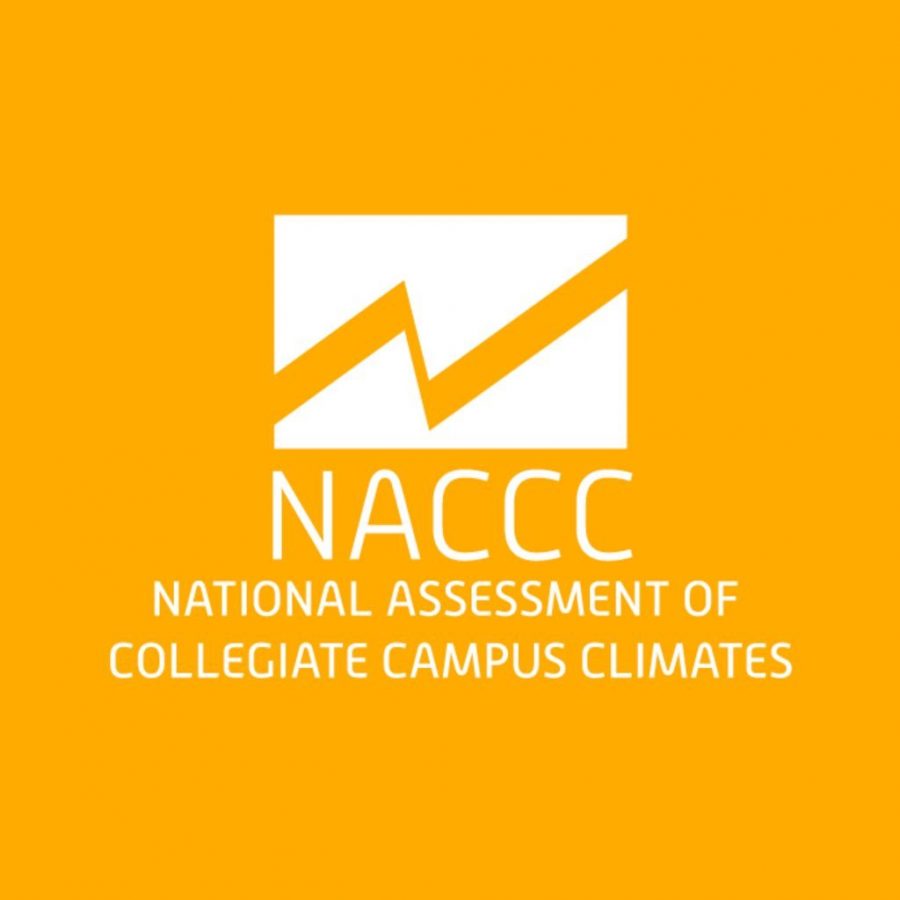NCAC to collect data on racial climate
The National Assessment of Collegiate Campus Climates, created by the University of Southern California’s Race and Equity Center, consists of surveys on race for undergraduate students, faculty, and staff. These anonymous and confidential surveys are then used by the given college’s administration to improve the racial climate on their campus.
Students across campus checked their emails on Oct. 25 to find a message from Kristin Dukes, Dean for Institutional Diversity at the College, informing them of an upcoming anonymous survey that they would have the opportunity to complete: the National Assessment of Collegiate Campus Climates.
“Your responses are essential to us gaining a better understanding of campus climate and for making Allegheny a more welcoming and inclusive community,” Dukes wrote.
Intercultural Advocate Maya Francisco, ’24, recalled her pleased reaction upon seeing this email.
“When I saw it, I was very happy to see it, because I know that we try to gauge … students’ perspectives,” Francisco said. “But this one specifically was on a personal level and a community level, which I think was a step in the right direction.”
One day later, students received an additional email from Dukes with a link to the survey, along with links to information about the Inclusion, Diversity, Equity, Access and Social Justice Center and the Counseling and Professional Development Center as on-campus resources.
The survey, according to the University of Southern California Race and Equity Center website, is the product of over 10 years of research conducted by the Race and Equity Center with a focus on assessing the racial climate of institutions across the nation. A quantitative assessment, it is designed to answer “how” questions and provide numerical data to either support or disprove a hypothesis, which in this case concerns the racial climate of a United States undergraduate college campus.
In November of 2020, Allegheny joined 50 other institutions nationwide — the likes of which include Bucknell University and Westminster College — to create the Liberal Arts Colleges Racial Equity Leadership Alliance, an initiative spearheaded by the Race and Equity Center.
One of the perks of being part of this alliance is the opportunity to complete a set of racial climate surveys on a three-year rotational basis. As this is Allegheny’s first full year of membership, the current survey on the rotation is the one aimed at students — the NACCC. The surveys offered in the second and third years of membership will be filled out by faculty and staff respectively.
In the survey, students are first asked to answer a few questions about themselves, indicating such things as their class year and their sexual orientation and their race to get a baseline for how they might respond to later queries. Throughout the survey there is an emphasis on learning students’ sense of inclusion on campus, and even in the broader community of the college town. Do students feel like they matter, that they belong at their institution based on their experiences with on-campus services or social events? Do their interactions in the college town tell a similar story?
Furthermore, the NACCC seeks to make a distinction between campus experiences with white people and people of color, be they faculty or staff or fellow students. With whom do students primarily have conversations surrounding race? With whom do students find themselves hanging out? Are they met with similar levels of concern and support from white professors and professors of color, or is there a notable difference?
The questions that follow further explore race as it pertains to the College. Students must gauge the impact political influences like police brutality and anti-Asian sentiments have had on racial tension on campus. They must also reflect on how often they have experienced racism personally while at Allegheny. These questions, and the memories that they stir up, can naturally be triggering, but there are campus resources to help students process their experiences and their emotions.
Located on the third floor of the Henderson Campus Center, the IDEAS Center — with which the Intercultural Advocates program is affiliated — provides a safe space for conversations surrounding equity and inclusion, conversations that this survey might foster. Intercultural Advocates like Francisco and Crystal Hernandez, ’23, play a large role in creating those spaces and promoting those ideals.
Hernandez commented on potential fears students might have when it comes to making use of the center and the services that it offers.
“I think people are a little intimidated to go into the IDEAS Center, but you don’t need to go in there for any reason,” Hernandez said. “If you want to chill, you can.”
With programs like the IDEAS Center and initiatives like the Intercultural Advocates, students have options when seeking inclusive spaces, even in just a casual sense, which can heighten the feeling of belonging that the survey tries to gauge. Specifically, according to Hernandez, the Intercultural Advocates intend on hosting monthly events beginning in November, as well as open up select hours for students to come in and talk.
The NACCC website states that “participating NACCC institutions will receive a customized NACCC Report that includes aggregated data from their students and a NACCC Climate Score that permits benchmarking with participating institutions and that provides recommendations for making their campus more inclusive.” The emphasis is on learning and moving forward given the results.
Francisco and Hernandez suggested that they would like to see the recommendations or the results of the survey first before determining the best course of action to take.
“One path we could take is to be able to use the recommendations or the results as a way to maybe create awareness of ‘this is how your community is feeling,’” Francisco said. “I think people are less aware of or less conscious about what’s going on, how other people are thinking.”
By way of upcoming events like campus microclimate assessments in the spring, strategic planning initiatives such as the action plan for addressing racial inequity and systemic racism on campus, and individual consults, Dukes and the rest of her Office of Diversity, Equity and Inclusion are already taking strides towards ameliorating issues that the survey explores. This work will involve making use of information gleaned from previous campus climate surveys.
“Allegheny is an orchestra,” Dukes remarked. “Allegheny is a symphony of beautiful music, but there needs to be a conductor of course to keep us on the same page, and ODEI is that conductor of the orchestra.”

Sofia Hassan is a second-year student from New Castle, Pennsylvania. She plans to major in English Creative Writing and minor in Middle East and North...









